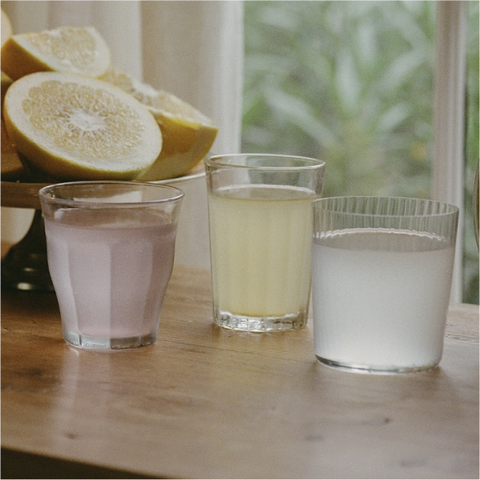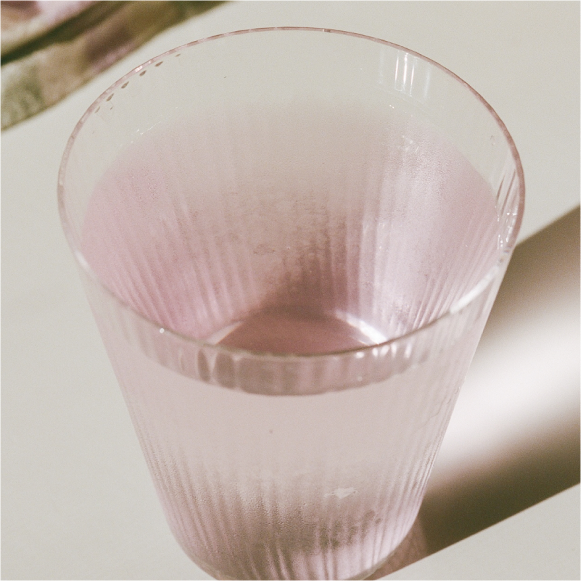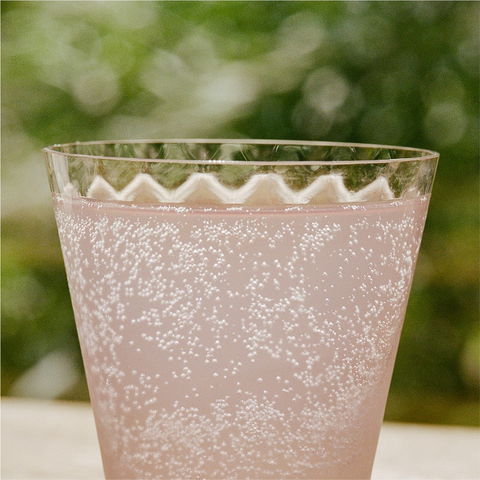Struggling with one sleepless night after the next? Instead of turning to meds as a first course of action, you might want to dabble with natural solutions for sleep. With countless natural sleep supplements available — each with varying safety, efficacy, dosage, and quality measures — it’s crucial to get a lay of the land before taking one. Valerian Root and Melatonin are two of the most popular supplements for sleep, yet they vary quite significantly in how they work.
Ahead, learn the ins and outs of Valerian Root vs. Melatonin—including what they are, their key differences, and whether one is better as a natural remedy for sleep.
Understanding Valerian Root vs. Melatonin
What is Valerian Root?
According to the National Center for Complementary and Integrative Health (NCCIH), Valerian is a plant native to Europe and Asia, though it also grows in North America. Its use for medicinal purposes has been logged since the times of Ancient Greece and Rome.
Reported benefits of Valerian include improvements in:
- Insomnia
- Anxiety
- Depression
- Fatigue
- Headaches
- PMS symptoms
- Menopause
What is Melatonin?
Melatonin is a hormone the pineal gland naturally produces when exposed to darkness. It has a significant impact on your circadian rhythm (aka your internal clock or sleep-wake cycles) and is thus highly involved in your sleep patterns and overall sleep quality. After all, it’s famously known as the sleep hormone.
When Melatonin is produced and released as normal, you should have a relatively easy time falling asleep on a consistent schedule. However, some things can interrupt Melatonin production and secretion, such as:
- Nighttime light exposure (whether from lamps, light pollution, or screens)
- Biological aging
- Certain health conditions and disorders
Aside from being a natural hormone in the body, Melatonin is also widely available in supplement form as a natural sleep aid. While many melatonin supplements are derived from animal sources, such as the pineal glands of cows, there are also animal-free Melatonin supplements that use a plant-based Melatonin, known as Phytomelatonin.
Is Valerian Root or Melatonin Better for Sleep?
Melatonin appears to be a better solution for sleep — namely, on account of the quality and consistency of research to date — as well as for specific circadian rhythm disruptions. However, Valerian Root may have an edge for people who struggle with both anxiety and sleep, though more research is needed
One 2013 meta-analysis published in the journal PLoS One investigated 19 studies involving nearly 1,700 adults and children with sleep disorders. The authors found that consuming a Melatonin supplement:
- Reduced sleep latency (i.e., the time it takes to fall asleep)
- Increased total sleep time
- Significantly improved overall sleep quality compared to placebo groups
Meanwhile, research on Valerian Root for a restful sleep is neither robust nor substantiative; findings are largely inconsistent. Many studies also rely on subjective self-reports rather than clinically demonstrated results. A 2020 meta-analysis of 60 studies published in the Journal of Evidence-Based Integrative Medicine concluded that outcomes on Valerian Root for sleep were inconsistent. In spite of its potential as “a safe and effective herb to promote sleep and prevent associated disorders,” quality control is largely an issue.
That said, a 2023 randomized, double-blind, placebo-controlled study found that supplementing with Valerian may be beneficial for some people who are seeking better sleep. The study of 72 adults having sleep trouble, published in the journal Advances in Therapy, found that participants who supplemented with Valerian Extract over 60 days experienced:
- Significant improvements in sleep latency and actual sleep time as early as day 3 of the study
- Improved sleep efficiency by day 14 of the study
- A decrease in daytime drowsiness, an increased feeling of waking up refreshed, and a decrease in anxiety throughout the study
All things considered, Valerian may be a good option for those who are dealing with both anxiety and sleep issues, though more research is needed to make conclusive claims.
Key Differences Between Valerian Root & Melatonin
Mechanism of Action
Valerian Root and Melatonin trigger different areas of the body to promote sleep.
Per the UK’s National Health Service, Melatonin supplements let receptors in your body know that it’s time to sleep. Higher levels of Melatonin — whether by enhancing production naturally or by supplementing — encourage the body to wind down for bed.
It’s unclear exactly how Valerian root helps to improve sleep. Yet, according to Mount Sinai, Valerian may increase levels of gamma-aminobutyric acid (GABA) in the brain. GABA has a calming effect on anxiety and thus can alleviate nighttime rumination and worry that stands in the way of falling asleep. (GABA supplementation itself has also been shown to improve sleep onset.) In short, higher GABA levels encourage restful sleep and relaxation.
Efficacy
Melatonin supplements are known for helping people fall asleep quickly. However, you might be wondering how long it takes for Melatonin to work? In many cases (and depending on the dosage), you’ll be able to feel the effects shortly after taking it. It takes about 1 to 2 hours for supplemental Melatonin to reach peak levels in your system, but you may feel Melatonin starting to kick in within as little as 20 to 30 minutes.
According to the Mayo Clinic, Valerian appears to be most effective for sleep if you take it consistently for 2 or more weeks. That said, recommended dosages and timelines are unclear, so supplementation may involve more trial and error when compared to Melatonin.
Usage
Though Melatonin is the most commonly used sleep supplement, it’s particularly ideal for those who need help to regulate their circadian rhythm due to the follow:
- Jet lag
- Overnight or irregularly timed shift work
- Delayed sleep-wake phase disorder (DSWPD)
- Occasional restlessness
Valerian Root has a mild sedative effect that can help calm the mind before sleep. However, it shows inconclusive results for sleep disorders.
Side Effects
Both Valerian Root and Melatonin may trigger undesired side effects. It’s important to consult a trusted medical professional before taking them — especially if you have a sleep disorder, another medical condition, or are taking medications.
According to the Mayo Clinic, potential side effects of Melatonin use (which are typically more likely to occur the higher your dosage is) include:
- Headache
- Dizziness
- Nausea
Taking too much supplemental Melatonin can also lead to a Melatonin hangover — i.e., feeling foggy and groggy from Melatonin the next day.
Next, the NCCIH notes that potential side effects of Valerian include:
- Headache
- Upset stomach
- Heart disturbances
- Dry mouth
Can You Take Valerian Root & Melatonin Together?
Although Valerian Root and Melatonin are both available over the counter, it’s safer to take one at a time to avoid triggering or heightening potential side effects. Taking a single natural sleep aid within a set period can also help you determine if it’s actually improving your ZZZ’s or not. (As always, your safest bet will be to consult a trusted medical professional before taking any natural sleep aids or supplements.)

Sleep Fast and Deep With Sleepy Magnesi-Om®
Since Melatonin has more robust research behind it, you may want to start off by opting for one of these supplements. To avoid the dreaded Melatonin hangover, microdosing Melatonin will help keep levels of the sleep hormone in the natural range without inducing grogginess. Sleepy Magnesi-Om® is a great option since it uses both Magnesium and Melatonin to help you sleep fast and deep. Its microdose of 0.3mg of plant-based (not synthetic) Phytomelatonin helps to regulate your circadian rhythm, while chelated, non-laxative Magnesium Bisglycinate and Gluconate support the body’s stress response and relaxation.* Nootropic L-Theanine rounds out the safe sleep powder to support sleep quality even further.*
Keep Sleepy Magnesi-Om® on hand for situational use. Mix 1 serving in 12 oz water before bed as needed to realign your circadian rhythm and let your body know it’s time to hit the hay.
Sources
- https://www.nccih.nih.gov/health/valerian
- https://www.nccih.nih.gov/health/melatonin-what-you-need-to-know
- https://pubmed.ncbi.nlm.nih.gov/22629173/
- https://pubmed.ncbi.nlm.nih.gov/23691095/
- https://pubmed.ncbi.nlm.nih.gov/33086877/
- https://link.springer.com/article/10.1007/s12325-023-02708-6
- https://www.nhs.uk/medicines/melatonin/common-questions-about-melatonin/
- https://www.mountsinai.org/health-library/herb/valerian
- https://www.ncbi.nlm.nih.gov/pmc/articles/PMC7527439/
- https://www.mayoclinic.org/diseases-conditions/insomnia/expert-answers/valerian/faq-20057875
- https://www.mayoclinic.org/drugs-supplements-melatonin/art-20363071












